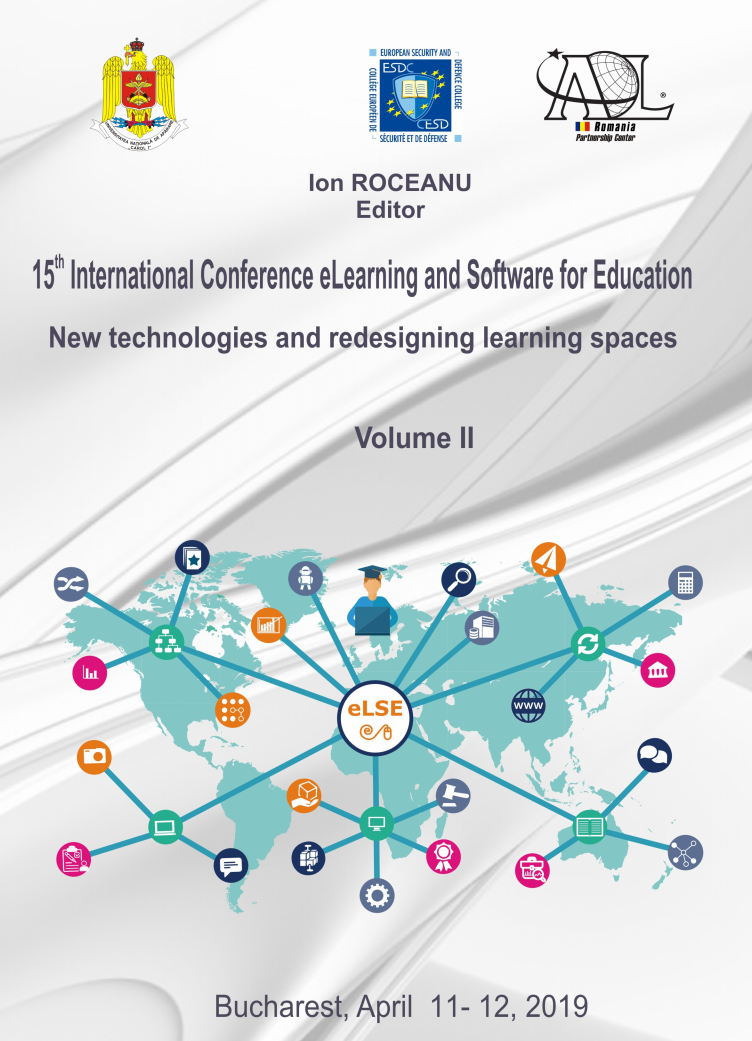An E-Learning Model in a Systems Theory Approach
An E-Learning Model in a Systems Theory Approach
Author(s): Brandusa RaileanuSubject(s): Social Sciences, Education, Higher Education
Published by: Carol I National Defence University Publishing House
Keywords: e-learning; foreign languages e-learning model; skills; Matlab software; discrete-time system; state-space representation;
Summary/Abstract: The paper proposes an e-learning model which uses the concepts and the methods of the systems theory. The first level of the model is the "black box" representation in which the system is characterized by its input and output terminals. The input terminals correspond to different types of e-learning methods, for instance e-courses, self-study materials, media means, virtual classrooms, interactive e-lessons, video/audio conferences, web-based training, mobile learning, social learning, chat, wiki, blog and personal site, simulation, serious game-based learning. The output terminals correspond to various kinds of examinations, for instance, tests, midterm tests, final exams and results of pairwork and groupwork activities, homework. On the second level, the state, input and output variables of the system are defined and one provides the mathematical model in terms of the state and output equations. Finally, the considered variables are organized into three kinds of vectors, which are the states, inputs and outputs of the model and the coefficients of the obtained equations form three matrices of appropriate dimensions. One obtains the state-space representation of the e-learning process in the form of a linear, discrete-time, time-invariant control system. This representation, which is at the interface between e-learning, systems theory and mathematics, enables the description of the system behaviour by two formulas, one for the state of the system at any moment of time and another one (called the general response or the input-output map) for the output of the system. The main advantage of this model is that one can apply the theory of the linear control systems to solve some problems. For instance, the fundamental concept of controllability and the corresponding techniques give the possibility of establishing a policy of learning so that a student's (or a group of students') state of knowledge comes at a given level at a given time. The dual concept of observability provides methods to estimate the state by knowing the values of the input and output. One can apply the optimal control to minimize or maximize an evaluation functional and obtain solutions in the form of a state feedback. An application to foreign languages e-learning is provided. The four macro language skills have been considered: the productive skills, i.e. writing and speaking and the receptive ones, i.e. reading and listening. This choice is influenced by their important position in foreign languages e-learning (and generally in learning), by the fact that nowadays they are considered skills in their own right, not only support for learning vocabulary or grammar. Another argument is that these skills are commonly used in combination and their learning processes should work interactively. The state-space representation of the e-learning process is obtained, by defining the state variables by the skills acquired at an interval of time. The Control Systems Toolbox of the Matlab software is used to generate and to study the corresponding control system. The given model can be extended to time-varying or to stochastic systems. The model can also be extended by introducing some micro skills, for instance pre-, while- and post-listening skills, email skills or the understanding and the use of specialized terms in a domain (such as engineering, economics, medicine etc.). For the research in the preparation of the paper, the author has received advice within the collective Systems Theory and Optimal Control at the Applied Sciences Faculty, University Politehnica of Bucharest.
Journal: Conference proceedings of »eLearning and Software for Education« (eLSE)
- Issue Year: 15/2019
- Issue No: 02
- Page Range: 430-437
- Page Count: 8
- Language: English

